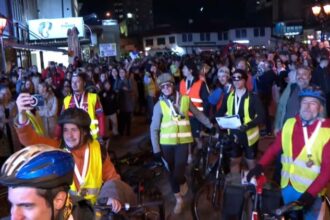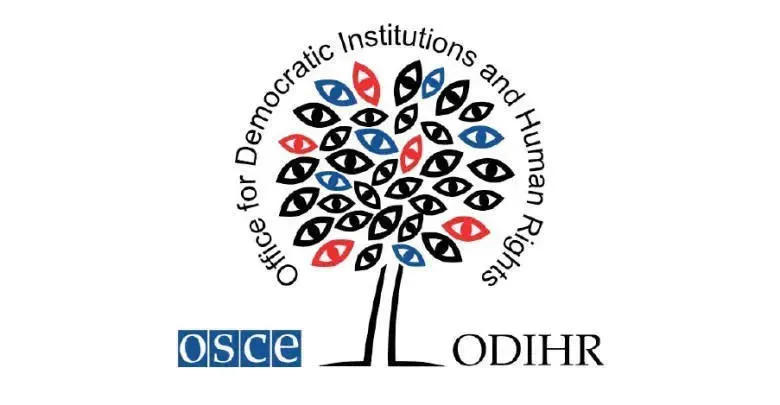The OSCE Office for Democratic Institutions and Human Rights (OSCE/ODIHR) publishes an interim report on the pre-election environment for the parliamentary elections in Georgia.
The interim report talks about the general political context, legal framework and electoral system of the October 26, 2024 parliamentary elections. In addition, the report reviews the work of the election administration and election technologies.
“For the first time in history, all polling stations will use electronic devices for identifying voters, counting results, determining preliminary results and transmitting them,” the report said.
The report focused on voter rights and registration. According to the report, in discussions with the ODIHR election observation mission, stakeholders involved in the process did not express particular concerns about the inclusiveness of the voter lists, although some noted that there are still inaccuracies in the voter list, likely stemming from the presence of deceased persons on the list and de facto citizens living abroad.
In addition, the report states that the pre-election period is taking place in a rather peaceful environment. “The law establishes fair conditions for the pre-election campaign. The official pre-election period began on August 27 and has been going on in a rather peaceful environment until now; The majority of election subjects are engaged in door-to-door visits, social network activity, meetings and rarely relatively large-scale actions. “Representatives of some opposition parties have expressed concern over alleged intimidation tactics by supporters of the ruling party and state agencies, which are directed against their pre-election campaigns and also against voters,” the report said.
Regarding the election campaign and politicians’ messages, according to the report, the election campaign messages that have come under observation up to this point are mostly saturated with extremely polarized rhetoric, “the ruling party presented the election as a choice between peace and war, while the majority of the opposition parties calls it a referendum on the geopolitical situation of the country”.
The interim report of the ODIHR monitoring mission also reflected the recent decisions of the Anti-Corruption Bureau.The report states that the anti-corruption bureau started an in-depth examination of financing during the election campaign period and requested additional reports in accordance with the assigned duty. “All election subjects have submitted their first interim report. What the anti-corruption bureau has published on its website, despite the fact that, according to the law, the bureau is not obliged to publish detailed checks and conclusions of these reports until the day of the vote,” the report says.
In addition, the interim report focused on the media environment and noted that the media environment is diverse but highly polarized and reflects political and business interests. It is also said that a number of civil defamation cases are pending against the media and threats against journalists are still relevant.
According to the report, the elections are taking place against the backdrop of heightened political polarization and deepening antagonism between the government and the president, as well as public discontent caused by the adoption of various laws.”In 2023 and 2024, there were large-scale protests against the Foreign Influence Transparency Law, which was initially withdrawn in 2023, but was revised the following year and passed on May 28, 2024. Immediately after these events and the adoption of the law, many stakeholders involved in the process reported to the Election Observation Mission of the Office for Democratic Institutions and Human Rights (ODIHR EOM) the facts of violence and intimidation against the participants of the protests, civil society and journalists. In July, the President and thirty-eight deputies, along with more than 122 civil society representatives and media organizations, filed a lawsuit against the Law on Transparency of Foreign Influence to the Constitutional Court and requested a temporary suspension of the law’s provisions. On October 9, the court accepted the lawsuit, but refused to suspend the implementation of the law until the final decision is published. Many local and international organizations, including the ODIHR, expressed concern that the adoption of this law could have a negative impact on the enjoyment of freedom of association and expression.
On September 17, the Parliament of Georgia adopted the Law “On Family Values and Protection of Minors”, which was strongly criticized by a number of international organizations, including several stakeholders involved in the process during a meeting with the ODIHR election observation mission, as a restrictive measure of fundamental freedoms and a tool aimed at stigmatizing the LGBT community. , – it is said in the report.
According to OSCE/ODIHR, the OSCE/ODIHR Election Observation Mission in Georgia (ODIHR EOM) started working on September 11 at the invitation of the Government of Georgia and in accordance with its mandate. The Mission is headed by Mission Ambassador, Owen Murphy. The mission’s core team consists of 12 members working in Tbilisi and 30 long-term observers, who have been distributed throughout the country since September 19. The members of the mission were selected from 22 OSCE member states; 48% of them are women. The OSCE Office for Democratic Institutions and Human Rights (ODIHR) asked member states to send 350 short-term observers to attend voting day procedures.
Read More @ www.interpressnews.ge













